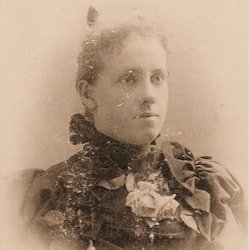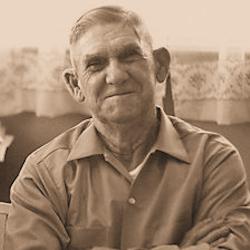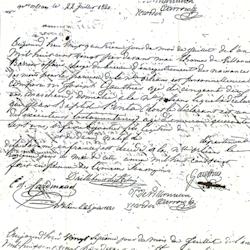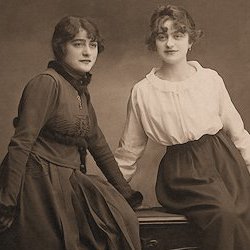


 Orleans
Parish, LAGenWeb
Orleans
Parish, LAGenWeb
Our Families' Journeys Through Time
We Do It Right!
Check Out Our Orleans Parish Ancestors
 Orleans
Parish & New Orleans
Orleans
Parish & New OrleansLa Nouvelle-Orléans (New Orleans) was founded in the spring of 1718 (May
7 has become the traditional date to mark the anniversary, but the actual day
is unknown) by the French Mississippi Company, under the direction of Jean-Baptiste
Le Moyne de Bienville, on land inhabited by the Chitimacha. It was named for
Philippe II, Duke of Orléans, who was Regent of the Kingdom of France at the
time. His title came from the French city of Orléans.
The French colony
was ceded to the Spanish Empire in the Treaty of Paris (1763), following France's
defeat by Great Britain in the Seven Years' War. During the American Revolutionary
War, New Orleans was an important port for smuggling aid to the rebels, and
transporting military equipment and supplies up the Mississippi River. Beginning
in the 1760s, Filipinos began to settle in and around New Orleans. Bernardo
de Gálvez y Madrid, Count of Gálvez successfully launched a southern campaign
against the British from the city in 1779. Nueva Orleans (the name of New Orleans
in Spanish) remained under Spanish control until 1803, when it reverted briefly
to French rule. Nearly all of the surviving 18th-century architecture of the
Vieux Carré (French Quarter) dates from the Spanish period, notably excepting
the Old Ursuline Convent.
As a French colony, Louisiana faced struggles
with numerous Native American nations. One of which was the Natchez in Southern
Mississippi. In the 1720s trouble developed between the French and the Natchez
Indians that would be called the Natchez War or Natchez Revolt. 230 colonists
were killed and the fort and homes were burned to the ground.
The conflict
between the two parties was a direct result of Lieutenant d’Etcheparre (more
commonly known as Sieur de Chépart), the commandant at the settlement near the
Natchez, decided in 1729 that the Natchez Indians should surrender both their
cultivated crop lands and their town of White Apple to the French. The Natchez
pretended to surrender and actually worked for the French in the hunting game,
but as soon as they were weaponized, they struck back and killed several men.
Resulting in the colonist fleeing upriver to New Orleans. The fleeing colonist
sought protection from what they feared might be a colony-wide Indian uprising.
The Natchez, however, did not to press on after their surprise attack, leaving
them vulnerable enough for King Louis XV's appointed governor Jean-Baptiste
Le Moyne de Bienville to reclaim the settlement.
Relations with Louisiana's
Indians, a problem inherited from Bienville, remained a concern for the next
governor, Marquis de Vaudreuil. In the early 1740s traders from the British
colonies of the Atlantic coast crossed into the Appalachian Mountains. The Native
nations in between the French colonials and British colonials would now operate
dependent on which of the two colonies would most benefit them. Several of these
tribes and especially the Chicksaw and Choctaw would trade goods and gifts for
their loyalty.
The economic problems under Vaudreuil would not allow
the French to outcompete the British and resulted in many of Louisiana's Native
American revolts. In 1747 and 1748 the Chicksaw would raid along the east bank
of the Mississippi all the way south to Baton Rouge. These actions supported
by the British colonials would force residents of French Louisiana to take refuge
in New Orleans.
https://en.wikipedia.org/wiki/New_Orleans
|
|
|||
| search engine by freefind |
St. Tammany Parish
- North
St. Bernard
- Southeast
Plaquemines
- Southeast
Jefferson
- Southwest




![]() Check
out The Sacremental Records of the
Archdiocese of New Orleans
Check
out The Sacremental Records of the
Archdiocese of New Orleans
![]() Check
out our Families
Section! Coming soon: Pioneer Families.
Check
out our Families
Section! Coming soon: Pioneer Families.
![]() You
think you know who you are, but when you have a DNA test, it sometimes
can rock your world!
You
think you know who you are, but when you have a DNA test, it sometimes
can rock your world!
I always wanted to be somebody, but now I realize I should have been more specific.
Money won't buy happiness, but it will pay the salaries of a large research staff to study the problem.
I have six locks on my door all in a row. When I go out, I lock every other one. I figure no matter how long somebody stands there picking the locks, they are always locking three.
This mailing list is AMAZING! Please join us! You can ask about your ancestors here!
To Subscribe: Send an email to
LAOrleans Mailing List
To Unsubscribe: Send an email to
Unsubscribe
Coordinator:
Marsha Holley
State Coordinator:
Marsha Holley
If you have questions or problems with this site, email me. Please to not ask for specfic research on your family.